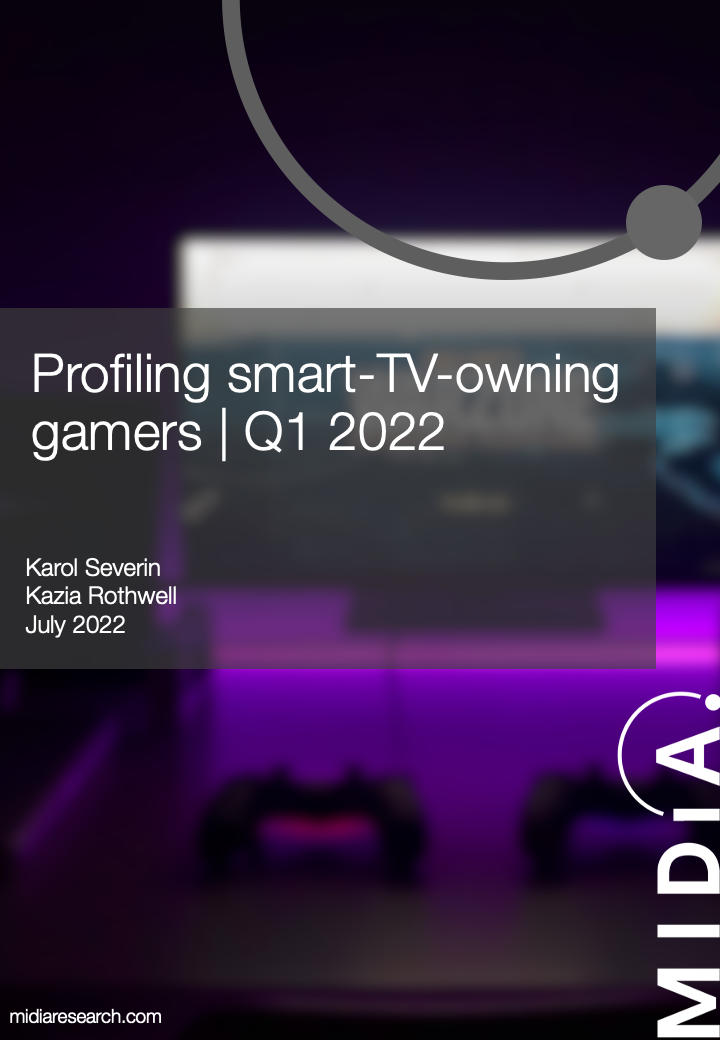Profiling smart-TV owning gamers

Get full access to this report and assets
If you are interested this report, or related reports such as Mapping Daily Active Gamers Across Platforms Diversity Is The Name Of The Game and Smart home Smart devices are winning the battle for the future of TV get in touch today to enquire about a report bundle.
Smart TVs are to play a growing role in the games industry’s value chain
TVs have always been an instrumental piece of hardware for console gamers to enjoy gameplay. With gameplay processing moving towards the cloud, and becoming more hardware-agnostic as a result, smart-TV makers will begin to carve out their own market share in games distribution. Early signs of this are already manifesting, recently illustrated by the distribution partnership between Samsung and Xbox.
Approximately half of all smart-TV owners are gamers. Gaming and the degree to which smart-TV makers cater to gamers needs over time will play a significant role in smart TVs transition from the traditional role of ‘video hardware’ and toward the role of ‘entertainment hardware’.
On the supply side, smart-TV makers have the potential to become valuable partners to games companies. Firstly, they can help games companies attract new gamers who refrained from buying expensive games-dedicated hardware thus far. Secondly, smart-TV owning gamers are a valuable, highly engaged gamer segment compared to the gamer average. Finally, integrating gamer experiences from a number of otherwise walled-off games ecosystems into a single smart TV device in the future would improve games discovery and overall user experience for gamers.
The following slides present consumer data on behaviors and preferences of smart-TV owning gamers compared to the overall gamer average. This is to help both smart-TV makers and games companies assess where key opportunities and pitfalls with this valuable segment are. The smart-TV owning gamer segment is coming to life and will gain even greater importance in the near-term future.
